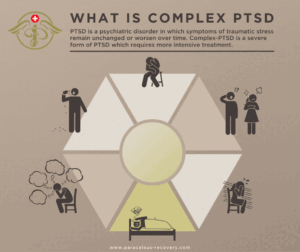INTRODUCTION
Kidnapping is a heinous crime that involves the unlawful abduction and confinement of individuals against their will, often for ransom, extortion, or political motives. Abduction and hostage-taking are two distinct but closely related forms of kidnapping, each with its own characteristics, motivations, and impacts. In this comprehensive analysis, we’ll delve into the complexities of abduction and hostage-taking, examining their methods, motives, psychological effects, and legal implications.

1. Abduction:
Abduction, also known as non-custodial kidnapping, involves the unlawful seizure or removal of an individual from their environment without consent or legal authority. Abductors may target victims of any age or demographic, including children, teenagers, adults, and vulnerable populations.
2. Characteristics of Abduction:
- Typically carried out by individuals or groups seeking personal gain, revenge, or exploitation.
- Abductors may use force, coercion, deception, or trickery to seize victims and transport them to a different location.
- Motives for abduction vary widely and may include ransom demands, sexual exploitation, human trafficking, forced marriage, or ideological extremism.
3. Psychological Effects of Abduction:
- Victims of abduction often experience profound psychological trauma, including fear, anxiety, helplessness, and post-traumatic stress disorder (PTSD).
- Long-term psychological effects may include depression, nightmares, flashbacks, social withdrawal, and difficulties forming trusting relationships.

4. Legal Implications of Abduction:
- Abduction is a serious criminal offense punishable by law in most jurisdictions, carrying significant penalties for perpetrators.
- Law enforcement agencies employ various investigative techniques and resources to locate abducted individuals, apprehend abductors, and ensure victims’ safe return.
- International cooperation and extradition agreements may be necessary to prosecute abduction cases involving cross-border crimes.
5. Hostage Taking: Hostage taking involves the unlawful confinement of individuals by perpetrators seeking to exert control, gain leverage, or achieve specific objectives. Hostages are held captive against their will, often under threat of violence or harm, until their captors’ demands are met.
6. Characteristics of Hostage Taking:
- Hostage-taking incidents may occur in various settings, including criminal activities, terrorist acts, political conflicts, or domestic disputes.
- Perpetrators may be motivated by financial gain, political ideology, revenge, publicity, or coercion.
- Hostages may be targeted randomly or specifically based on their perceived value or strategic importance to the captors.
7. Psychological Effects of Hostage Taking:
- Hostages often experience extreme psychological distress, including fear, helplessness, uncertainty, and trauma.
- Stockholm syndrome, a psychological phenomenon where hostages develop positive feelings towards their captors, may occur as a survival mechanism in prolonged hostage situations.

8. Legal Implications of Hostage Taking:
- Hostage taking is universally condemned as a violation of international law, human rights, and humanitarian principles.
- Perpetrators of hostage-taking may face criminal prosecution, extradition, and sanctions under domestic and international legal frameworks, including the Geneva Conventions and United Nations conventions against terrorism.
9. Prevention and Response Strategies:
- Preventative measures, such as enhancing security protocols, implementing crisis management plans, and promoting community awareness, can help deter abduction and hostage-taking incidents.
- Effective crisis negotiation, hostage rescue operations, and diplomatic interventions are essential for resolving hostage situations and securing the safe release of hostages.
- Support services, including counseling, trauma therapy, and reintegration assistance, are crucial for assisting abduction and hostage survivors in their recovery and rehabilitation.
In conclusion, abduction and hostage-taking are grave crimes with profound physical, emotional, and legal implications for victims, families, and societies. Understanding the characteristics, motives, psychological effects, and legal ramifications of these crimes is essential for preventing and responding to abduction and hostage-taking incidents effectively. By prioritizing victim safety, law enforcement cooperation, and international collaboration, stakeholders can work together to combat kidnapping and protect individuals from harm.



